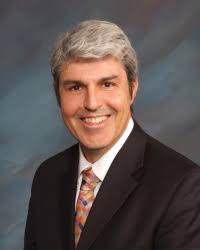October 15, 2021
Despite 13 years of medical school, internship, residency, and fellowships in cardiology and nuclear medicine as well as 25 years in private practice as a Boulder cardiologist, Nelson Trujillo, MD, feels very comfortable telling his patients that he doesn’t know the answer to many of their questions. The fact is, doctors are realizing, that the more they learn about health, the more they learn they don’t know.
“I’ve become really comfortable in the unknowing,” Trujillo says.

In his field of caring for the heart, technology has become so sophisticated that a simple computerized X-ray, called a CT scan, of the heart, can find coronary artery disease with 99 percent certainty. But what the scan can’t tell the doctor is whether the disease will cause a stroke or heart attack in the next five years, next 25 years, or not ever.
“We’re very, very good at finding coronary artery disease, but we’re lousy as predicting what the next 30, 40, or 50 years looks like, so our approach is that we assume the worst. We assume that next year, you’ll have a heart attack so we become very aggressive with putting you on aspirin, statins to lower your cholesterol, and making lifestyle changes.”
How the Human Genome Project and Epigenetics Play a Role
When the human genome was mapped at the beginning of this century, researchers and physicians thought the answers to who would develop disease and how to stop it was just around the corner. What they quickly learned is that a complex body means complex answers. Genes are static and may or may not be expressed.
Take Trujillo, for example. His father, also a physician, had his first heart attack at age 37. Eventually, he died of a heart attack at 78. Two decades older now than when his father had his first heart attack, the younger Trujillo isn’t worried about the bad genes he inherited. “I believe in health and I do everything I can (to prevent a heart attack.) I’m not worried that something is going to happen any time soon.”
Trujillo is relying on the science of epigenetics to maintain his health. Epigenetics are behavioral and environmental factors that impact your genes—good and bad, according to the Centers for Disease Control and Prevention. In many cases, people have control over their epigenetics but choosing to make changes such as eating better or exercising can be difficult when a person only knows they are at risk but not how much risk, Trujillo says.
The ability to have a clearer picture of who will actually develop disease is what led Dr. Trujillo to become a COLS board member. “I want to understand if changes we make will influence risk over time,” he says. “We think we know that stress is a cause of cardiovascular disease, but is it stress or social isolation or depression? We think fat around the waist may be a risk factor, but is it the fat or the fact that it collects around the middle that is the risk factor?”
The Future of Health Predictions Starts with COLS
By collecting a unique combination of biological samples, health records, and epigenetics data on a group of Coloradans over time, COLS will help scientists determine whether changes a person makes today influences risk over time. With a look at not just a person’s biological health but their entire life, scientists will be able to parse out the factors that Trujillo mentions and many more.
This information, in turn, can help address health inequities by understanding root causes of disease and the actions that prevent or reverse that trajectory, says COLS CEO Phyllis Wise.
“We don’t have to look further than COVID-19 to see the inadequacy of scientific data in understanding and addressing the health disparities experienced by communities of color,” Wise says. “We know that Black and Hispanic communities had higher levels of COIVD-19 infection, more severe symptoms, and a higher death rate. But we don’t know whether that is due to poor air quality, crowded living conditions, pre-existing conditions such as diabetes, or a myriad of other reasons. Knowing – not just assuming – the answers to those types of questions is critical to investing in the right solutions to affect change and dramatically improve health.”
Artificial intelligence and its ability to comb through the vast amounts of data that COLS will be collecting and storing is “absolutely the way of the future,” Trujillo says. “There’s no question about the need for COLS. The need to build these large databases where AI and neural networks can help us predict who is in trouble is clear.”

